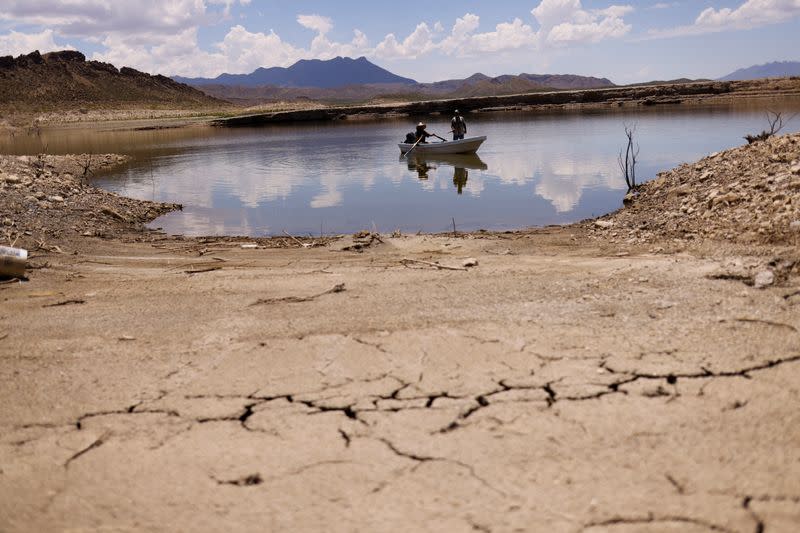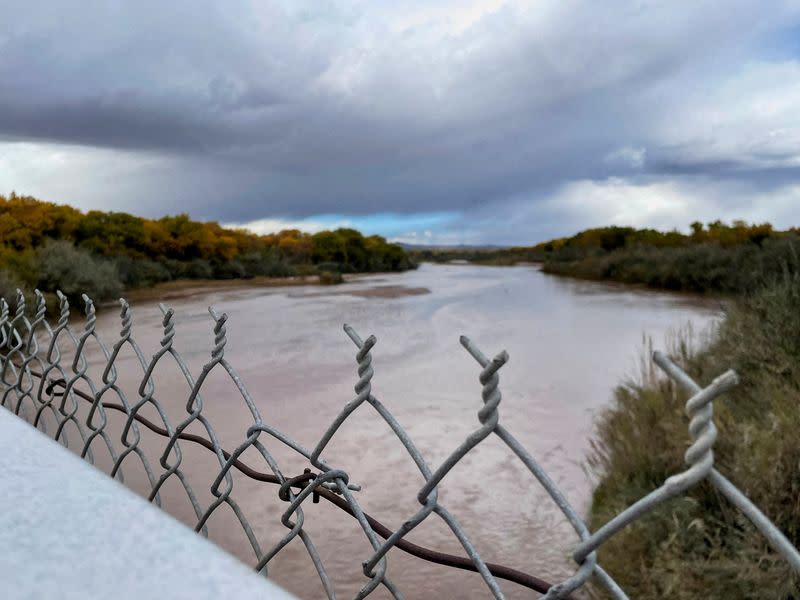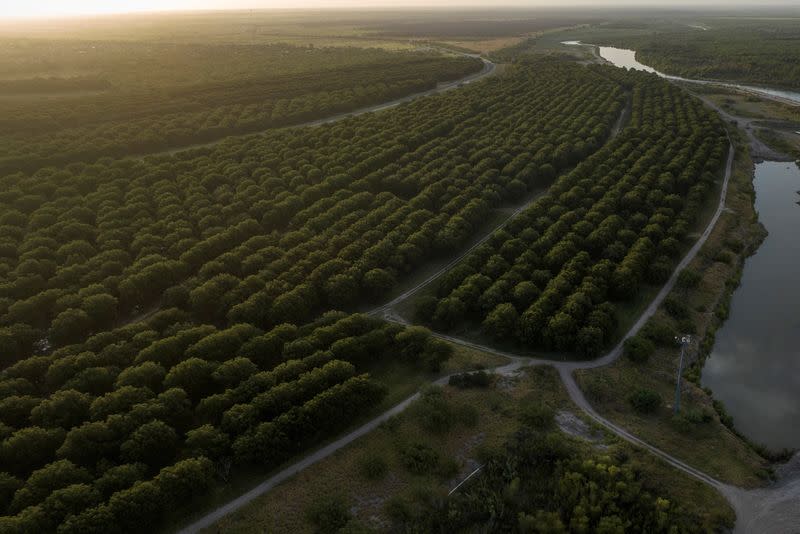Parched Texas growing season looms as US, Mexico spar over water treaty
By Leah Douglas, Cassandra Garrison and Marcelo Teixeira
(Reuters) - Texas farm groups warn of a disastrous season ahead for citrus and sugar as Mexican and U.S. officials try to resolve a dispute over a decades-old water treaty that supplies U.S. farmers with critical irrigation.
The neighboring countries have tussled over the 1944 treaty before, but the current drought-driven water shortages are the most severe in nearly 30 years and add to existing political tensions over genetically modified corn.
Under the treaty designed to allocate shared water resources, Mexico is required to send 1.75 million acre-feet of water from the Rio Grande to the U.S. over a five-year cycle.
Now in year four, Mexico has sent only about 30% of its expected deliveries, the lowest amount at this point of any four- or five-year cycles since 1992, according to data from the International Boundary and Water Commission (IBWC), which oversees the treaty.
The last sugar mill in Texas has shut down due to the lack of water, at a time of low U.S. supplies and high prices for the sweetener.
"This water is impacting not only the farmers, but it's impacting the employment of citizens within our community," U.S. Representative from Texas Monica De La Cruz told Reuters.
Manuel Morales, secretary of the Mexican section of the IBWC, said Mexico is working to comply with its commitments but that the water shortage is due to climate change and the treaty allows more time to deliver water in the event of extraordinary drought.
Mexico's national water authority, Conagua, says severe drought has gotten worse and the country is facing the worst drought conditions since 2011.
Some residents have protested in Mexico City after going without running water for weeks.
De La Cruz and three other members of Texas' Congressional delegation met with Secretary of State Antony Blinken on April 11 to ask the State Department to do more to enforce the treaty.
Blinken on the call committed to speaking with Mexican officials about the issue, two sources familiar with the matter told Reuters.
A State Department spokesperson said the agency is closely following the water shortages and has urged Mexico to sign a revised water agreement.
U.S. IBWC spokesperson Frank Fisher said commission officials from both countries have met several times since 2023 to renegotiate aspects of the treaty in hopes of increasing reliability.
Both countries have had agricultural water shortages in recent decades, Fisher said.
CROSS-BORDER DROUGHT
Texas's half-billion-dollar citrus industry is heavily dependent on water from Mexico, especially with drought conditions growing more severe in the region, said Dale Murden, president of the industry group Texas Citrus Mutual.
"You can't count completely on rainfall. It's nice when it happens, but you need to control the water on the tree," he said.
Texas is the third-largest citrus state behind California and Florida.
Data from the U.S. National Integrated Drought Information System shows below-normal precipitation and moderate to severe drought conditions in the region.
For Texas sugarcane farmers, the outlook this season is "complete and absolute despair," said Sean Brashear, president and CEO of Rio Grande Valley Sugar Growers.
The group in February shut its sugar mill in Santa Rosa, Texas, after 51 years of operation due to the lack of water from Mexico.
Though Texas is not a major sugar producing state, global sugar supplies are tight and the closure will likely lead to increased U.S. sugar imports, said broker and supply chain services provider Czarnikow.
The U.S. imports around a third of its sugar and has increased imports of highly taxed, pricey sugar since countries holding low-tariff import quotas failed to fulfill them.
IBWC's Morales said the weather conditions have led to lower levels in the Rio Grande River basin.
"It is not a question of only affecting users on the U.S. side, we in Mexico are also suffering the consequences of this shortage," Morales said.
The USDA in April reduced its estimate for Mexico's 2023/24 sugar production to the lowest in 10 years.
(Reporting by Leah Douglas in Washington, Cassandra Garrison in Mexico City, and Marcelo Teixeira in New York; writing by Leah Douglas; Editing by Caroline Stauffer and Josie Kao)




